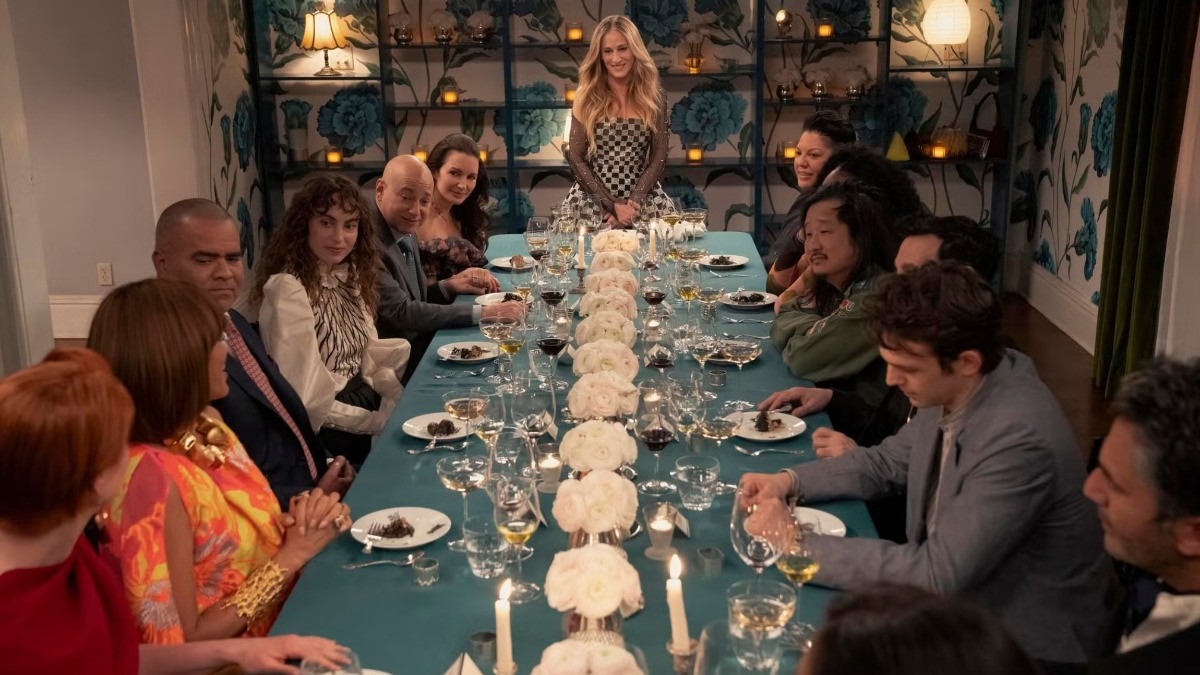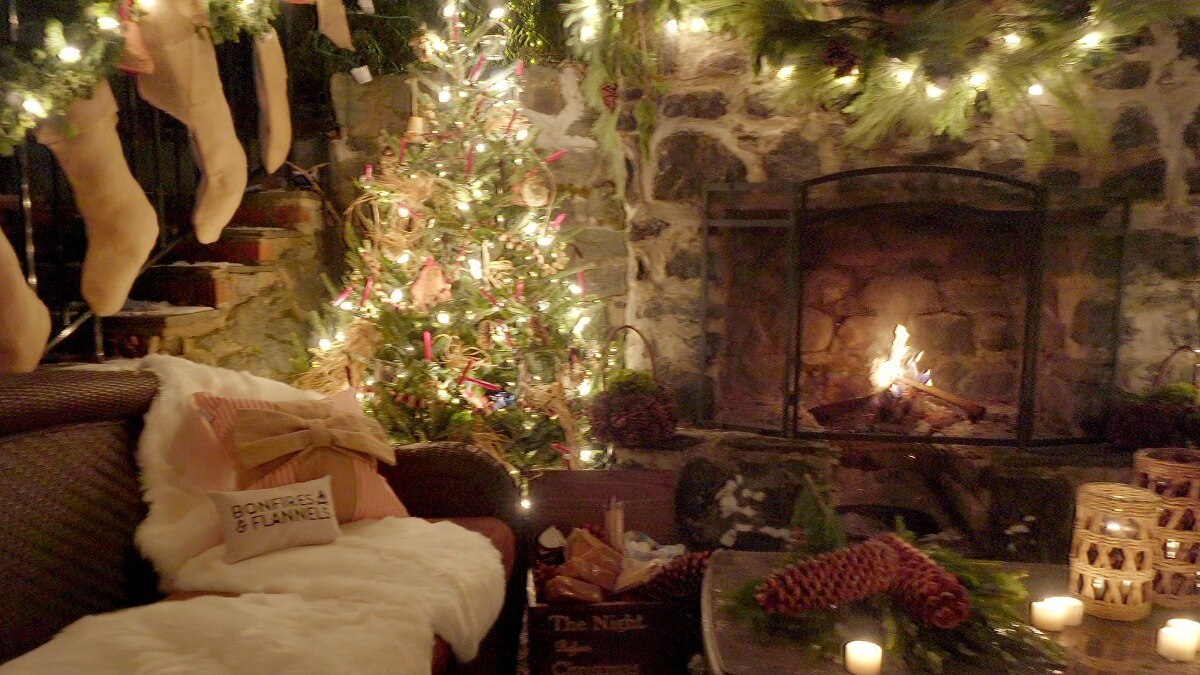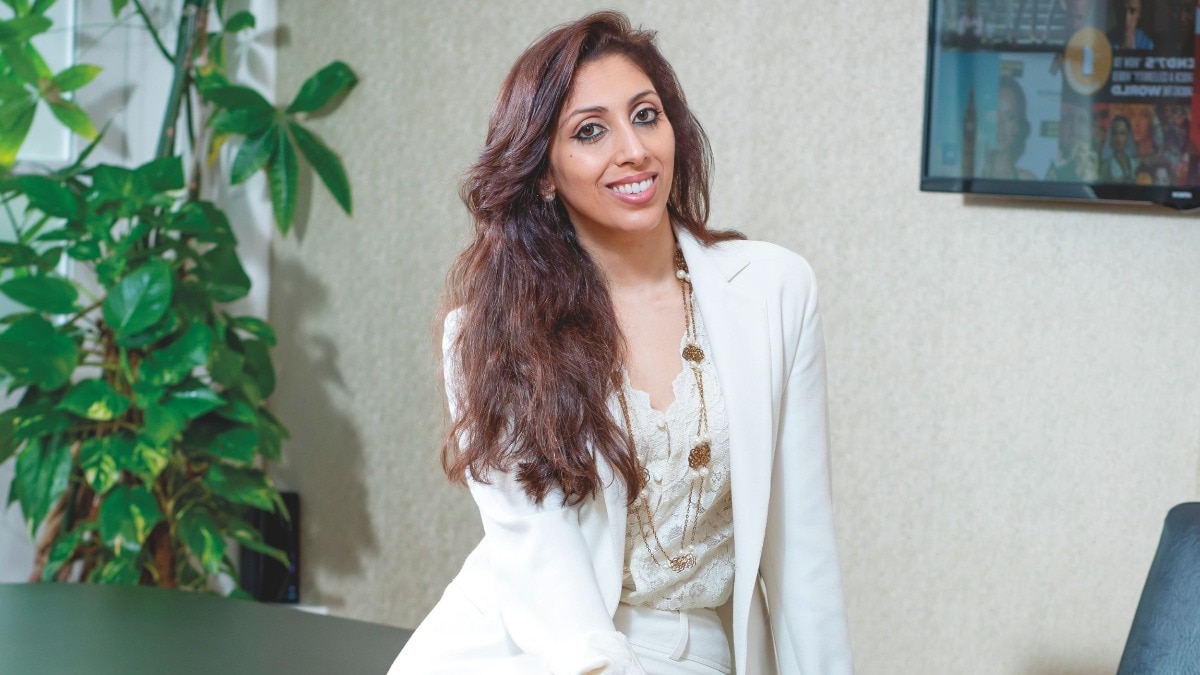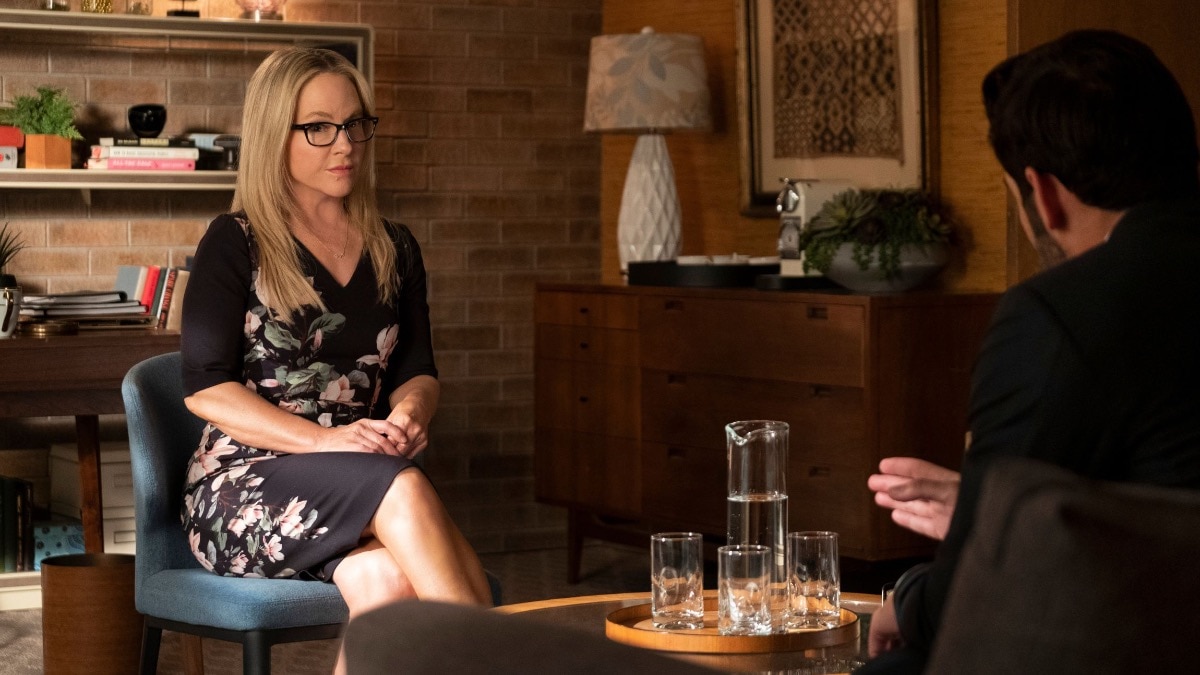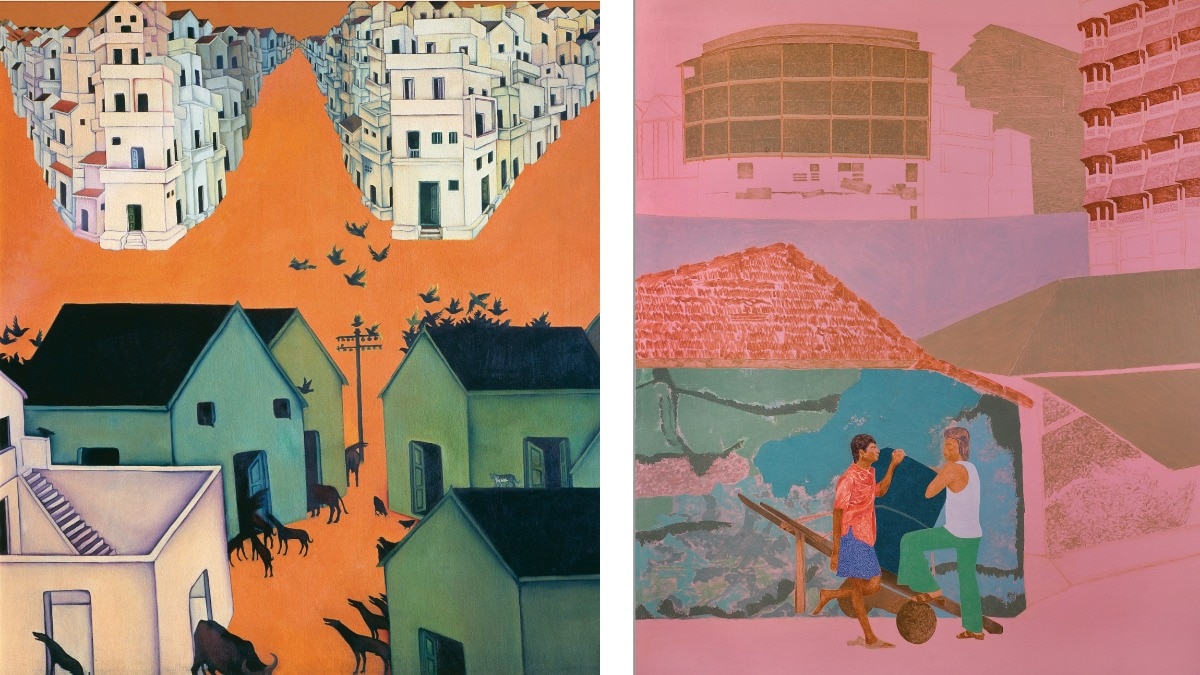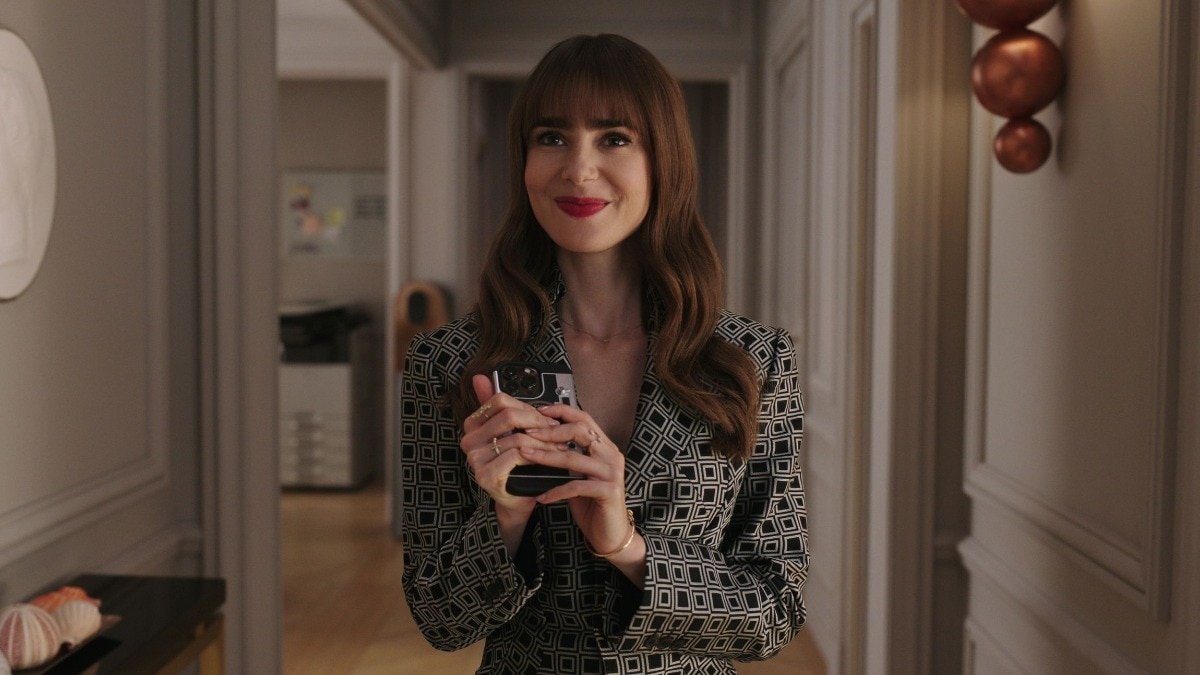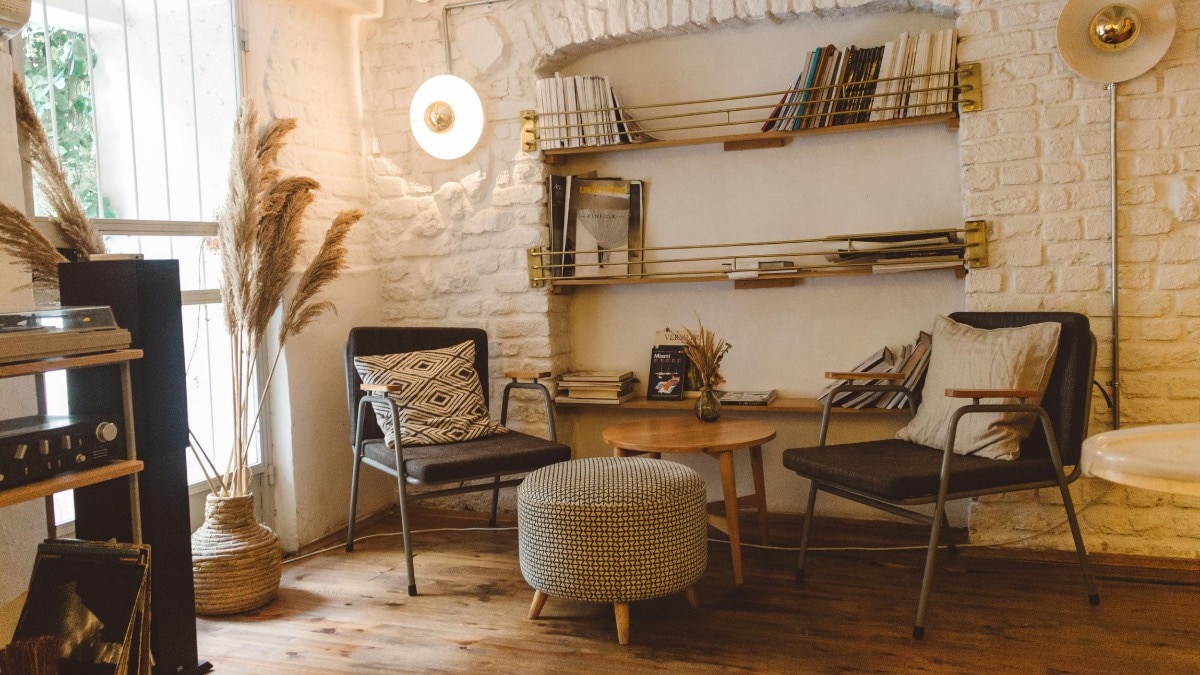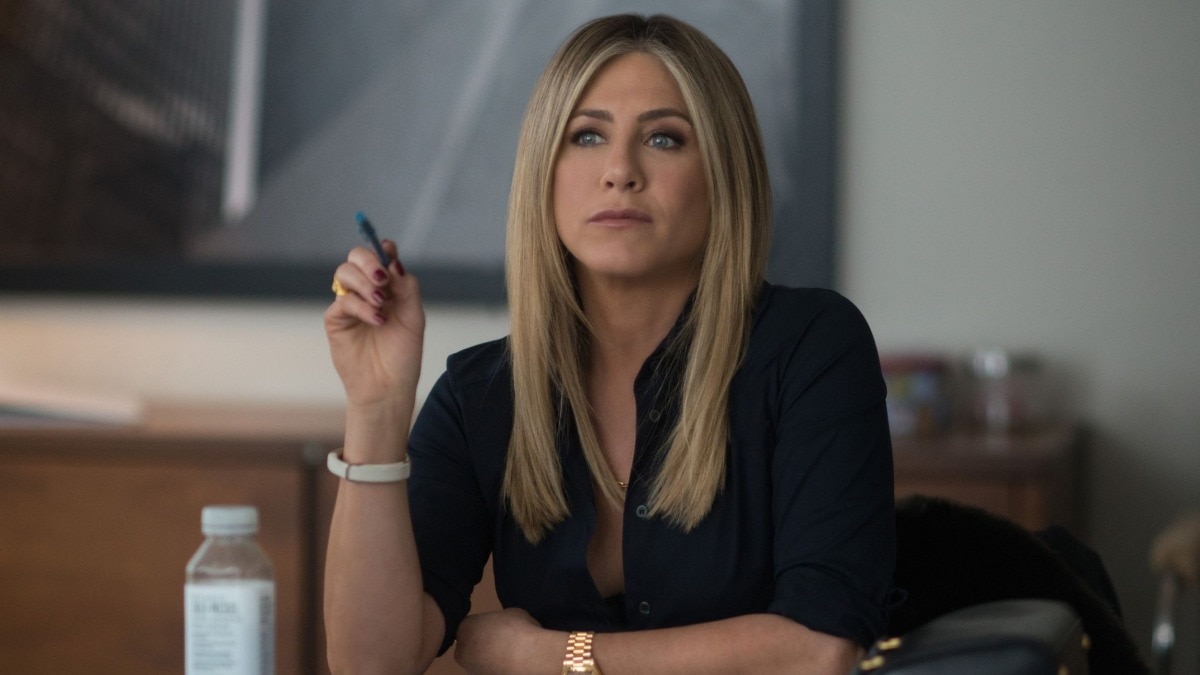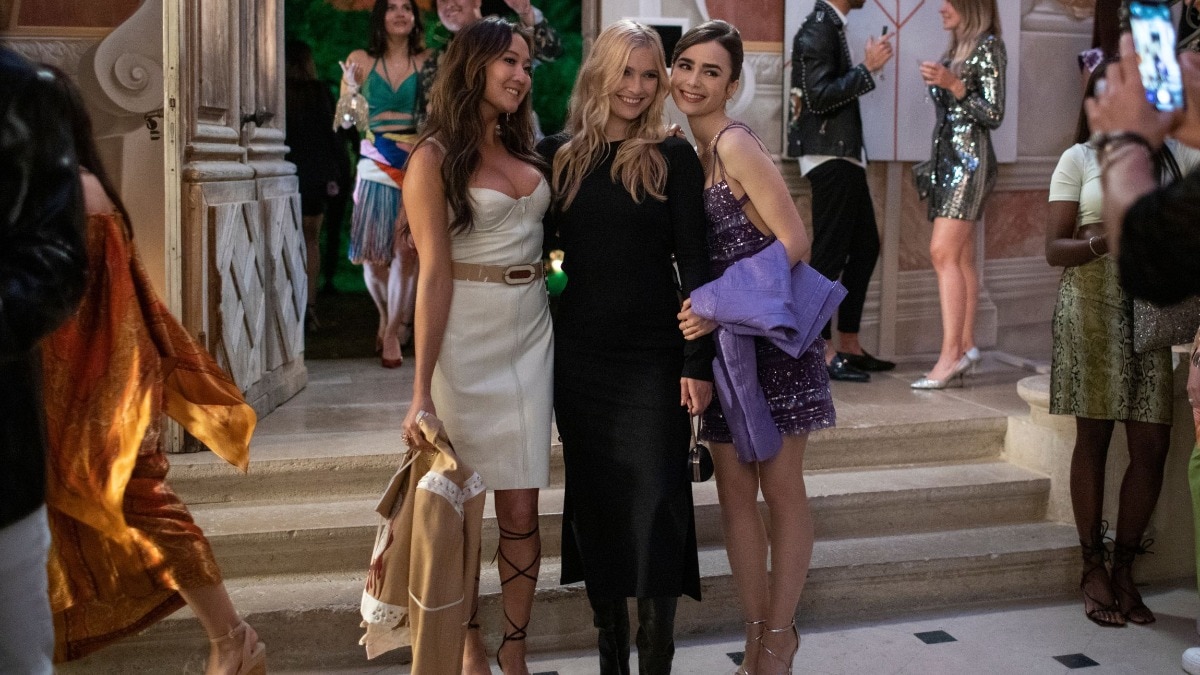The meet-cute’s revenge
Was there such a thing as love before Bumble, Tinder, and Hinge? How a generation of relationship seekers that came of age swiping is now looking to meet people in new (and some very old) ways.

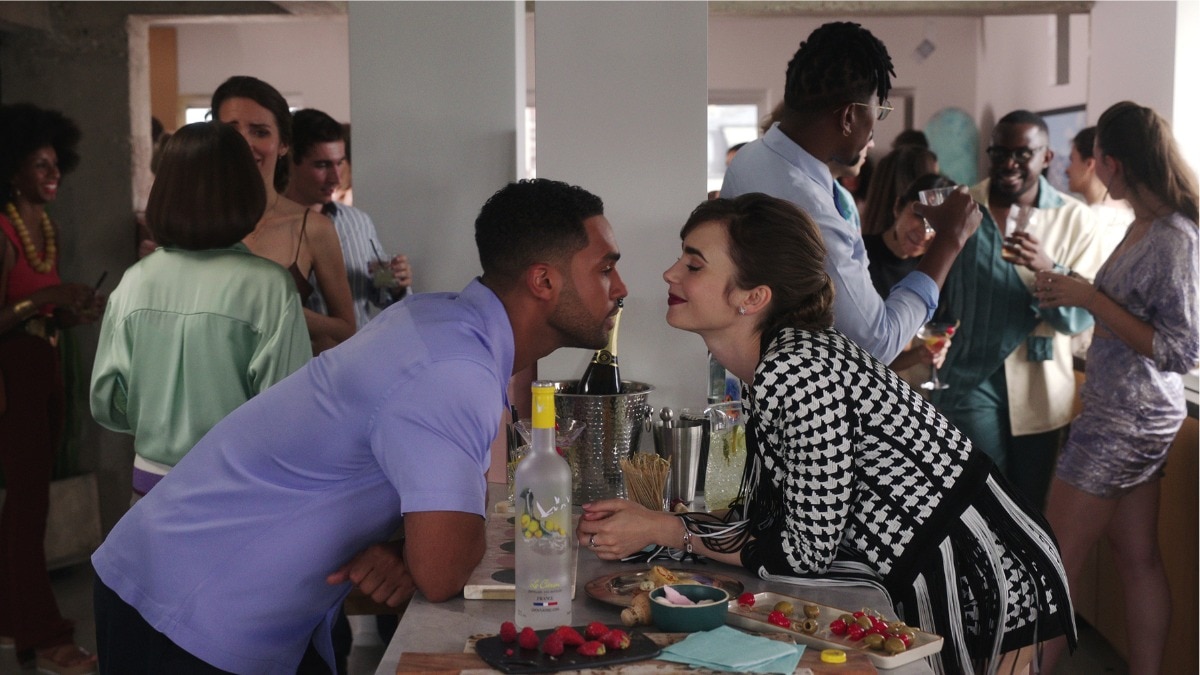
Earlier this year, Whitney Wolfe Herd, founder of the app giant Bumble and a cofounder of Tinder, offered a solution for the future of dating: AI. Speaking onstage at the Bloomberg Technology Summit in San Francisco in May, Wolfe Herd envisioned a scenario in which an app user’s AI “dating concierge” would “date” other people’s AI concierges, recommending the best matches among the lot. Online and off, people reacted with malaise, amusement, and horror, with many pointing out that this was a literal plot point in an episode of the dystopian television series Black Mirror.
Wolfe Herd’s predictions for the future of dating, like anything else, exist in historical context. In the spring of 2020, as COVID-19 blanketed the United States, dating-app usage surged. Bumble’s video-call feature saw a 70 per cent increase in activity. The number of OkCupid users going on virtual dates shot up by a factor of seven. Tinder broke a record for swipes in a single day: three billion worldwide, or nine times the population of the country.
Four years later, we’re reminded of one of the most enduring patterns of nature, culture, and markets alike: the S-curve, or sigmoid curve. For every boom, a corresponding bust; for every period of flourish, one of decay. In 2023, Tinder’s base of 10 million subscription-paying users decreased by 8 percent following three consecutive quarters of declines. By the end of 2023, the stock price of Match Group, which operates the largest portfolio of online dating services, including Tinder, OkCupid, and Hinge, had tumbled to about a fifth of its peak in 2021. Bumble’s stock, too, has fallen as much as 85 percent since its February 2021 IPO.
To say that mainstream dating apps are in their flop era is not a controversial statement in 2024. Online and off, daters bemoan the user experience—boring, compulsive, unproductive, sometimes downright painful—that mainstream apps often have on offer for them, even as some of them cite having occasionally met good partners using apps. Even the formerly heralded “good apps” have come under fire, like Hinge for its infamous “Rose Jail,” the user-coined term for the app’s apparent practice of gatekeeping the profiles users find most attractive and potentially compatible behind paywalls.
Dating apps did not bring us a world of general exhaustion, cruel desirability politics, disagreeable social interactions, or the attempted extraction of profit from every potential function of human life. And yet they often enable or are enabled by exactly these things. Dating apps expose the tenets of modern life that have become unbearable.
But it wasn’t always this way. I came of age at a time when dating apps were the new kid on the block, novel and buzzy, a sanitised successor to the world of Craigslist personals and scuzzy forums. The messaging around dating apps was the same techno-optimistic call that rang from the prayer towers of Silicon Valley in the early 2010s: That we were sublime creatures of upward progress. That we could wield technology to disrupt what was inefficient and antiquated. That what we needed most was to deliver on the desires of our lizard brains, namely more abundance, agency, reward, and ease.
But now? “It’s total enshittification on there,” says Marlene*, a 35-year-old visual artist and teacher based in Northern California, of the apps. Enshittification is tech-speak coined by the writer Cory Doctorow to describe the kind of decay that happens to digital platforms when the companies behind them choose profit and growth rather than the best interests of their users.
At first, companies “are good to their users,” Doctorow wrote, explaining the process of enshittification. “Then they abuse their users to make things better for their business customers; finally, they abuse those business customers to claw back all the value for themselves. Then, they die.”
“I think having apps that are explicitly for dating, at this point, is kind of crazy,” says Luke, a 26-year-old Philadelphia-based musician. Gen Z and living in a large American city, Luke is in a prime target demographic of dating apps, but he’s deleted all of them from his phone. “Meeting people on the apps is very thin. You can’t really get to know somebody off them.”
Luke is part of a growing vanguard of people who are practicing a refusal of what has stopped serving them, opting out of app-mediated dating in hopes of a more human approach to connection.
People who date without apps are often reliant on a combination of their social circles, activities, routines, and luck. Many of them have accepted that singleness is one possible outcome of their choices, and one that is more preferable to them than years of unhappily swiping. Manu, a 41-year-old nonprofit professional in New York, deleted her dating apps in 2020. Earlier this year, someone she had met 15 years earlier reached out to her on Instagram. They began talking extensively; Manu experienced a depth of connection and longing that she had not felt in a very long time. “And when I say that this completely rocked my world,” she says, “I am not exaggerating. I am now planning a trip to meet him in London in a few weeks. I would rather do this than go on, like, three dates in Brooklyn. The apps have been absolutely soul-crushing for me.”
Mark, a server in his mid-20s from Chicago, isn’t swearing off the apps forever. But last year he took Grindr, Hinge, and Scruff off his phone. “I’m kind of romantic, and the apps are … not,” he says. “They were making me feel gross, and in a couple of cases I felt like this feeling resulted in me acting gross too.”
Nevertheless, he has a hard time imagining that his forswearing of the apps will stick. “Sometimes I’ll be out in the world and I’ll hear the Grindr notification chirp on someone else’s phone and I’ll have this funny, twitchy feeling, like I want that,” he explains. “It’s like I’m trying to quit smoking or something.”
The addiction metaphor might have something to it: Dating apps can be hard to leave behind. This past Valentine’s Day, Match Group was sued in federal court in San Francisco; the class-action complaint claims a gamification on the part of company-owned apps like Tinder and Hinge that seeks to “transform users into gamblers locked in a search for psychological rewards that Match makes elusive on purpose.”
The many people I spoke with who have deleted their dating apps try to meet people in ways that may sound familiar or novel, depending on when you were born and how extensively your psyche was rewired by the Covid years: at bars and social functions; through friends and setups; through book clubs and bike groups; through activism and sex parties. A now-married couple I know met doing coordination work for their neighborhood mutual-aid group.
But to understand the slowly emerging new paradigm of dating requires fully grappling with what underlaid the old.
In her 2019 book The End of Love, sociologist Eva Illouz noted that “consumer culture— arguably the fulcrum of modern identity—is based almost axiomatically on the incessant practice of comparison and choice.” Illouz quoted a banker who compared acquiring a date on the apps to ordering food delivery on Seamless; he said that dating apps are “the free-market economy come to sex.”
Put another way, in the ecology of app dating, the specificities of your desire and the personal history that has shaped that desire, your larger relational context, and your ability as a human being to change in response to another human being or change them are all so much less important than you having choice. According to the executives and engineers of corporate dating apps, what matters most to people is an abundant sexual and romantic marketplace where users can efficiently select and consume what or whom they want.
And it turns out, one decade in, that many people do not want an infinite marketplace or wish to be one of its many wares to be efficiently picked out or left behind. What more and more people hope for is connection, gratification, fun, partnership, sweetness—ideally accessed in slightly more human ways.
Getting off dating apps has been, for many people I spoke to, less about a repudiation of technology itself and more about a refusal to play by a modern dictum of maximising endless comparison and choice—and potentially ending up lonelier and hungrier than before. Many people use Instagram, Twitter, and TikTok to strike up conversations with connections they’re interested in. One low-tech twist on non-app-based dating is the date-me doc, which originated in tech, effective-altruism, and rationalist circles, sometimes with quirks like sizable cash “bounties” payable to anyone who can find the poster a mate. While early adopters were inspired by online dating applications from people like Twitter influencer Aella and the rationalist blogger Jacob Falkovich, date-me docs have evolved and begun to spread beyond EA and rationalist communities. Picture romantic CVs, often published on platforms like Google Docs or Notion. Shared by friends or listed in online directories, date-me docs often include character references and detailed personal essays about what the writer seeks romantically.
Marlene, the previously mentioned teacher from Northern California, has met two people in person using a 1,300-word date-me doc she created. These were good experiences, she says. “It felt more human, everyone being direct about what they want and making the time to read in-depth stuff about each other.” Still, one challenge with date-me docs, she notes, is “getting yourself found” in the directories, so she asked friends to share hers. Her own forthrightness and vulnerability, Marlene hopes, will invite forthrightness and vulnerability from others.
Anne*, a 55-year-old writer based in Brooklyn who got on the apps after a divorce and recently left them, offers the trenchant assessment that many people who sign up for profiles are often essentially dishonest with themselves, and thus unavoidably with others, about what it is they want. “You’ll see people claiming to be interested in partnership, but they just want entertainment and hedonism. You’ll meet people claiming that what they want is hedonism, and an hour in you can tell that they’re so hungry for partnership. They’re just telling you—and themselves—otherwise.”
Forces of profit seeking aside, there are also, obviously, non-techno-deterministic reasons why the apps are painful and frustrating for so many. The fault, as it turns out, lies not only with our machines. Within dating pools, even the promised infinite marketplace, there exists a problematic growing gulf between genders, in ideology (men trend conservative and women trend liberal), education (women are more likely to have a college degree and, increasingly, the economic advantages that accompany one), and quite simply the kind of emotional maturity that allows people to be in good relationships with each other.
Additionally, the tributaries that flow into the great river of Tinder are the people seeking long-lived partnership, sure, and the people who are seeking casual assignations, sure, but also people seeking entertainment, distraction from boredom, a surge of no-strings validation, distraction from self, business opportunities, and unexamined distraction from existing long-lived partnerships. All these motives, all these people, mix uneasily in a vast pool, swiping in their algorithmically assigned hierarchies of eligibility.
People, sometimes not even consciously intending to, use the apps ambivalently and transactionally, which means they use other people ambivalently and transactionally.
“I also think people lack [certain] social skills, especially people who are younger than me who grew up with a pandemic,” Luke from Philly muses, noting that there are fewer opportunities and more barriers to meeting new people socially and being able to engage them well. But this is why, he believes, dating off apps is useful as a social practice. He also highlights the value of the kinds of accountability that can be found when existing in a known relational web—accountability that discourages bad or callous behavior of the kind that leaves so many people hurt and demoralized. “I think that being off the dating apps forces me to be interested in people that I have social relationships with. You can’t just disappear off the face of the earth.”
Meeting and dating people offline with intention can involve openness, self-possession, vulnerability, the shoring up of sometimes rusty social skills, the necessity of being present enough that you notice people around you, the challenges of asking others for support in finding a mate, the loss of the addictive dopamine rewards of phone-based apps, and the friction (and liberation) of speaking both desire and the lack of it out loud to another person’s face.
What those who run dating corporations either do not understand or choose to obscure is that romance, eroticism, and what we might call love have nothing to do with efficiency and everything to do with the ineffable mysteries and vagaries of the self. How someone grows. How someone responds to another. How someone realizes desire, moment by moment, both changeable and patterned as weather. How one understands oneself in relation to a wider world—a social world. What the world of tech has framed as inefficiency, it turns out, might play a crucial part in figuring out who you are and what you want.
Or maybe they do understand this. Whitney Wolfe Herd, after all, met her husband IRL, striking up a conversation on the ski slopes of Aspen.
No one knows that dating apps are not providing good experiences for many users right now better than the executives of dating apps themselves, who have observed the falling graph of their industry S-curve and are desperately retooling new widgets, new fixes, new paradigms, new attempted avenues out of enshittification that don’t involve the sacrifice of profit. Regardless of directional outcome, swipe-based, infinite-supply dating will almost certainly feel like the way of the dinosaur in the next few years.
One pioneer in an alternate model is the smaller, queer-centered app Lex, which recently morphed from an explicitly dating-focused app to a more broadly defined social platform. Lex’s CEO, Jennifer Rhiannon Lewis, says the company is responding to user demand. “We found that post-Covid, especially for our Gen Z users, a swipe-based match that gets you directly to a romantic date felt like too big a jump, versus meeting as a friend and then getting to know each other or meeting in a group and romance potentially developing after that.”
In Lewis’s telling, allowing people to forge authentic bonds in person can lay a more solid foundation for eventual romance. “We found that options around friends, meetup groups, community cultivation, and dating work for our audience,” she explains. “Younger LGBTQ+ audiences are a bit less likely to want to follow the traditional binaries and ladders of gender or sexuality or even relationship choices.”
Dating apps did not materialize in a vacuum. Before the advent of Tinder, Match, or Hinge, you had forums, classifieds, organized matchmaking, and informal matchmaking. Put otherwise, there used to be, in more widespread forms, an altered response to the understanding that people often need connective and mediatory help in finding romantic prospects.
The response I’m talking about was the idea that a community of people bore some responsibility, in some limited ways, for connecting those within it who had not found love—or, more precisely, marriage. It was understood then, as it is now, that the world is often more advantageous to the coupled. But there persisted also, in some subsets of the old world, the idea that we belong to one another. That we are responsible for one another, for our lonelinesses, for the way we treat one another. To be clear, this former paradigm was not always positive for all, particularly for non-normative people in conservative milieus. Anyone who has had a difficult experience with an old-school matchmaker, an arranged-marriage proposition, or just the cheery insensitivity of long-coupled friends can tell you this. Any community, after all, is only as good as the people who make it up.
But at the end of the day, there is nothing more human than to need to be wanted, to hope for companionship, to seek another person to desire or pleasure or cherish. In a hypercapitalistic system, every unmet need is transformed into a financial exchange. And unmet need, of a variety of kinds, is the foundation that the past decade of dating apps was built on. As we’ve seen to such a degree in the last few years, there can be electrifying and moving noncapitalist community responses to unmet need, though they tend to be dependent on the doggedly committed, altruistic few. People, for example, who put together dating events and mixers, people who matchmake, people who observe their friends and make careful and sensitive nudges and setups within their social worlds.
More collective responses to the challenges of dating IRL have cropped up in recent years. The New York City chapter of Democratic Socialists of America has thrown speed-dating events that have sold out. For a while, Randa Sakallah, a San Francisco–based writer who wished to get off dating apps herself, compiled Hot Singles, a newsletter and online community that featured interview-style personals. Hot Potato Hearts, a speed-dating and events company in Chicago run by two queer women, is built around the objective of creating “authentic community and relationships of all kinds, by getting us off our phones and engaging with one another.”
Luke from Philly is currently interested in somebody he met through the sister of a friend he knows through organizing. Regardless of how that works out, he hopes to stay off the apps permanently and prioritize partners met organically, through community. “Also,” he adds, “you have to have a social life to have real relationships. You have to cultivate a social life. If you want to meet people, the best way to do that is to have friends.”
Change is coming, no matter what, for the way we date. It might involve having your AI avatar scan 600 other people’s AI avatars to find you a couple of matches, accessing and mining, no doubt, untold amounts of data about the most private parts of your life and psyche in the process. But it also doesn’t have to be that way. Refusal, reimagination, and looking out for one another might point to a different path. If people in sufficient numbers refuse the paradigm of the last decade, that path might be something other than “the free-market economy come to sex,” or partnership, or the bewildering, yearned-for mystery we call love.
Last year, Aimée*, a 28-year-old poet in the Bay Area, deleted every dating app on her phone. Not long after, she noticed a beautiful woman in her yoga class, a woman who occasionally returned her gaze.
She says that in real life, away from apps, it can feel much riskier to admit attraction. “It felt strange to be in this really confusing situation of not knowing if the other person was attracted to me and also not knowing if the other person was queer,” she says. “With dating apps, you really don’t have to deal with that.”
But when Aimée ran into the woman from her yoga class again at a concert, she asked her out. They’ve been dating ever since.
*Name has been changed.
This article first appeared in harpersbazaar.com in July 2024.
Also read: How Amanda Nguyen uses fashion to empower survivors of sexual assault
This interior designer is on a mission to bring people closer to nature with her home designs

